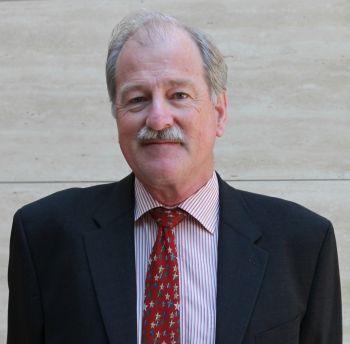Sabina Zaccaro interviews CARLOS SERÉ of the International Fund for Agricultural Development (IFAD)
RIO DE JANEIRO, Jun 13 (TerraViva) Over the centuries, smallholders have learned to adjust to environmental changes and climate variability. But the climate is now changing too fast and intensely for farmers’ capacity to adapt.
“These farmers cannot be left alone,” Carlos SerĂ©, IFAD’s chief development strategist, told TerraViva in an interview.
Excerpts from the interview follow.
Q: How is climate change multiplying the risks for agriculture and for farmers?
A: Over the years agriculture has been evolving with the climate, with population increase, with the changes in consumption. But the variability and unpredictability of climate change effects are now overturning broadly adopted approaches to cultivation and the ‘natural’ evolution is not fast enough to go along with the change in the climate.
As rainfall becomes more erratic, for example, varieties once productive in a certain micro-climate may no longer be. These things are making agriculture riskier with implications for farmers but also for consumers in the rest of the world.
Solutions that we need to take now require enormous coordination (since) what used to happen naturally with the adaptation has now to be addressed actively through investments, through research, and changes in the technology.
I think the international community is now a lot more aware that we need to do much more to manage risks, in a comprehensive manner involving production, consumption, trade. IFAD is working on agriculture risks assessment and management in various countries but of course a lot more capacity building work would be required.
Q: For farmers, one of the most difficult impacts of climate change is the loss of predictability. What kind of help could make them be more productive and climate smart?
A: Planting schedules handed down by generations are no longer valid and farmers can no longer rely on historical averages of rainfall and temperatures. In addition to traditional risks, smallholders now face new threats, such as sea-level rise and the effect of melting glaciers on water supply.
It is not just one intervention which is going to help farmers. First, they need public policy support, and this relates to the rule of law, a functioning jurisdiction and a functioning marketing. But then they also need effective infrastructure, access to the market, and timely information. And they do need functioning services.
Farmers cannot be left alone, we need more interaction and governments’ engagement to provide the right type of services. If smallholders are to be protagonists in intensifying sustainable agriculture, they will need support in dealing with the risks they face.
Q: Where should this support come from?
A: In the past we used to think that all these services have to be provided by government. Nowadays we see that a lot of these roles can be provided by the private sector, which anyway has to be adequately monitored by governments.
IFAD has also recently initiated the Adaptation for Smallholder Agriculture Programme, which will help channel finance into climate-smart, sustainable investments in poor smallholder communities. It aims to help eight million smallholders become more resilient to climate change by 2020.
The initiative will focus on appropriate agricultural practices, efficient water use, expanded capacities for adaptation and risk reduction among communities, more resilient infrastructure and knowledge sharing on climate-smart practices.
Q: What does Rio+20 mean for smallholder farmers? Do you expect it will listen to their voices?
A: Rio is very ambitious in terms of sustainable development making sure we really address – as we tried to 20 years ago – those economic, social and environmental dimensions (of development). Clearly agriculture is absolutely central to that. Large parts of the world still are very agrarian societies, and agriculture is central to the discussion both in terms of the solutions but also the issues which the world worries about.
But this is not mainstreamed in the discussion. If you look at the draft outcome documents, there hasn’t been an enormous amount of appetite to put agriculture in there and I think that is one of our challenges. One of our major goals is to make sure that agriculture, and particularly smallholder farmers, that their dimension is not lost in the Rio process.








 Add to Google
Add to Google







